
Diversity, Equity & Inclusion (DEI) Education
- Registration Closed
Webinars and Research Articles Include:
- Health Equity in Home Infusion (AC23 Webinar) CE
- Part of Me: Essentials to Creating an Affirming Environment (AC23 Webinar) CE
- Culturally Responsive Care (AC23 General Session)
- Recongnizing Barriers to Patient Education: Literacy and Learning - How to Ensure Patients Understand Their Services (AC22 Webinar)
- Clinical Considerations for Managing a Diverse and Inclusive Patient Population (AC22 Webinar)
- Equity in Home Infusion (INFUSION Magazine Article) CE
- A Multi-Center Study of Home Infusion Services in Rural Areas (INFUSION Journal Article)
- Sociodemographic Factors Associated with Treatment for COVID-19 and Their Relationship with Short-Term Acute Care Utilization (INFUSION Journal Article)
- Is My Patient Non-Compliant or Do They Have Low Literacy Skills (INFUSION Magazine Article)
Advanced Search This List
-
Contains 4 Component(s), Includes Credits
This article reviews the social determinants of health, the conditions in the environments where people are born, live, learn, work, play, worship, and age that affect a wide range of health, functioning, and quality-of-life outcomes and risks.
Health equity has become a priority for many health care providers and organizations since the COVID-19 pandemic when inequities in care became undeniably clear. However, health equity is not a new issue – it has been a barrier to care for many patients over the years. This article reviews the social determinants of health, the conditions in the environments where people are born, live, learn, work, play, worship, and age that affect a wide range of health, functioning, and quality-of-life outcomes and risks. SDoH can be grouped into 5 domains: social and community context, health care access and quality, neighborhood and built environment, education access and quality, and economic stability. The authors use examples from health care research to illustrate specific SDoHs and discuss how the home and alternate site infusion care model may address them.
Learning Objectives:
- Define health equity, health disparities and social determinants of health related to home infusion.
- Describe current legislative initiatives in support of health equity and how they impact the home infusion industry.
- Recall examples of social determinants of health and develop methods to improve health equity.
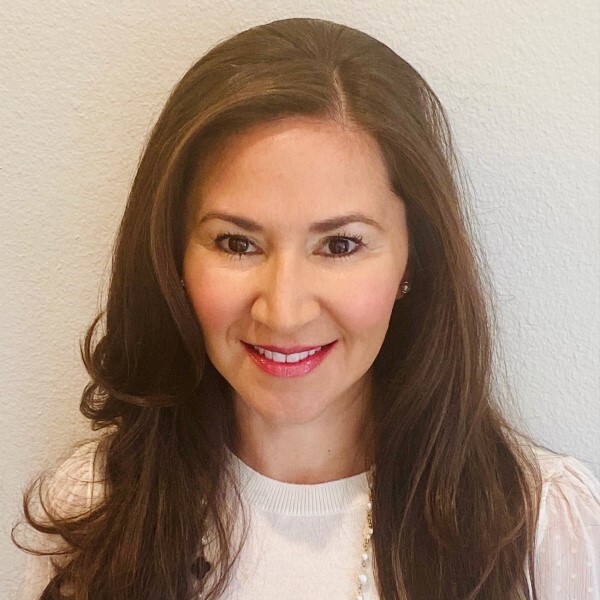
Christina Ritchey, MS RD LD CNSC FASPEN
Clinical Program Manager
Optum Infusion Pharmacy
Home Parenteral Nutrition Workshop Take Off: A Pilot Program for Patient Support
Christina Ritchey, MS, RD, LD, CNSC, FASPEN is a Clinical Program Manager at Optum Infusion Pharmacy. She is a Registered Dietitian and Certified Nutrition Support Clinician, working in the home infusion industry since 2009. She has authored numerous abstracts and publications related to nutrition support, outcomes, health equity and literacy. Christina is the recipient of the 2021 NHIF Outstanding Abstract Award and 2022 ASPEN Home Parenteral and Enteral Nutrition Trailblazer award. Christina serves on the NHIA Clinical Practice Committee and ASPEN Publications and Membership Committees. She is also the President of the Texas Alamo Society of Parenteral and Enteral Nutrition.
No Disclosures to Report

Eintou Ford, MS, PharmD
Pharmacy Manager
UNC Homecare Specialist
She has experience as a clinical infusion pharmacist and in research laboratories. Ford has served as a preceptor for several pharmacy college students and has numerous publications and speaking engagements to her credit. She serves on NHIA's Education Committee and is a member of ASHP and the North Carolina Association of Pharmacists. Ford received her B.S. in Biology from Norfolk State Univerity, graduating cum laude, a M.S. in Biology from North Carolina Central University, and a Pharm.D. from Campbell University College of Pharmacy and Health Sciences in Buies Creek, North Carolina.
No Disclosures to Report
-
Contains 2 Component(s)
The purpose of this study is to examine the effect of low literacy on compliance for a home infusion patient.
Literacy is the ability to understand, evaluate, use, and engage with written texts to participate in society, to achieve one’s goals, and to develop one’s knowledge. Home parenteral nutrition (HPN) patients with low literacy may be considered non-compliant if they are unable to follow their prescription, have negative outcomes, or are readmitted to the hospital often. Studies show patients with low literacy have poorer health, higher hospitalization rates, and increased health care costs. The purpose of this study is to examine the effect of low literacy on compliance for a home infusion patient.

Christina Ritchey, MS RD LD CNSC FASPEN
Clinical Program Manager
Optum Infusion Pharmacy
Home Parenteral Nutrition Workshop Take Off: A Pilot Program for Patient Support
Christina Ritchey, MS, RD, LD, CNSC, FASPEN is a Clinical Program Manager at Optum Infusion Pharmacy. She is a Registered Dietitian and Certified Nutrition Support Clinician, working in the home infusion industry since 2009. She has authored numerous abstracts and publications related to nutrition support, outcomes, health equity and literacy. Christina is the recipient of the 2021 NHIF Outstanding Abstract Award and 2022 ASPEN Home Parenteral and Enteral Nutrition Trailblazer award. Christina serves on the NHIA Clinical Practice Committee and ASPEN Publications and Membership Committees. She is also the President of the Texas Alamo Society of Parenteral and Enteral Nutrition.
No Disclosures to Report
-
Contains 2 Component(s)
This study examines patient sociodemographic and clinical characteristics and their relation to COVID-19 treatment, focusing on intravenous bebtelovimab, oral nirmatrelvir/ritonavir, or no treatment; data is extrapolated to further understand the relationship of treatment and patient characteristics on short-term acute care outcomes.
Health disparities have been exacerbated during the COVID-19 pandemic. Despite COVID-19 treatments being associated with lower morbidity and mortality, recent data illustrates that treatment may be underutilized by certain patient populations. This study examines patient sociodemographic and clinical characteristics and their relation to COVID-19 treatment, focusing on intravenous bebtelovimab, oral nirmatrelvir/ritonavir, or no treatment; data is extrapolated to further understand the relationship of treatment and patient characteristics on short-term acute care outcomes.
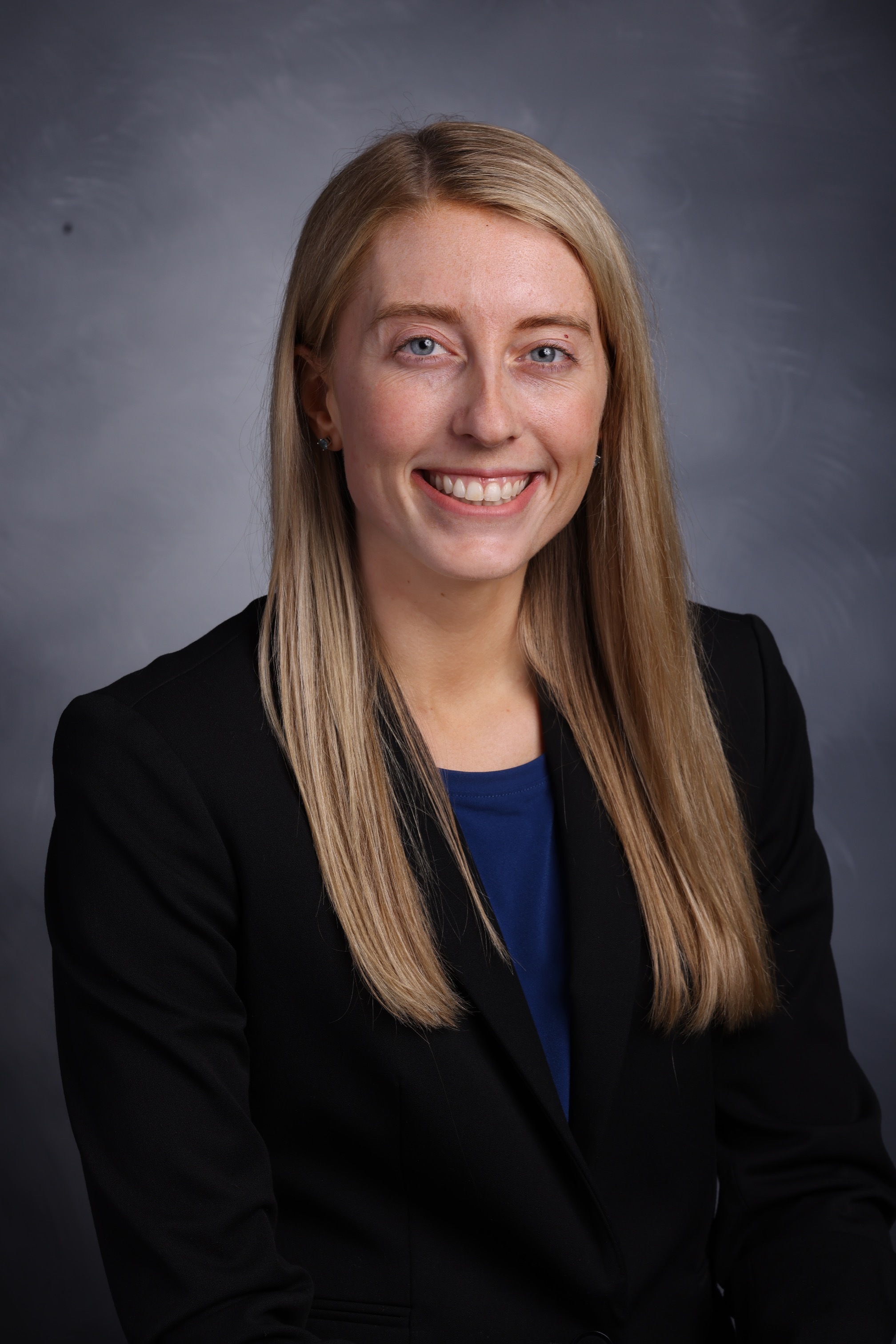
Kassie Klasen, PharmD
PGY1 Pharmacy Resident
Fairview Pharmacy Services
Kassie Klasen, PharmD is a PGY1 Ambulatory Pharmacy Resident at M Health Fairview in Minneapolis, Minnesota. She graduated in 2022 from the University of Minnesota College of Pharmacy. Throughout pharmacy school, she worked as a pharmacy intern at an ambulatory infusion center. She currently staffs at Fairview Home Infusion and has completed residency rotations with several ambulatory pharmacies within the health system.
No Disclosures to Report

Alicia Zagel, PhD MPH
Fairview Pharmacy Services
No Disclosures to Report

Mary Nelson, PharmD
Fairview Pharmacy Services
No Disclosures to Report

Eric Betzold, MS
Fairview Pharmacy Services
No Disclosures to Report
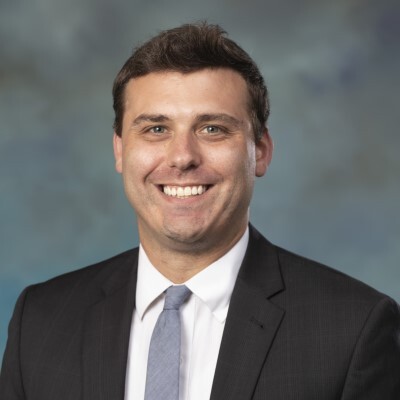
Brett Benfield, PharmD, MS, FNHIA
Director of Home Infusion & Compounding
Fairview Pharmacy Services
Brett Benfield PharmD, MS, FNHIA has worked for MHealth Fairview since 2014 serving in several capacities including his current role as Director of Pharmacy for Fairview Home Infusion and 503A Compounding.
No Disclosures to Report
-
Contains 2 Component(s)
This study aimed to determine the annual percentage of home infusion patients living and receiving home infusion services in rural areas.
Approximately 15% of the U.S. population lives in rural areas. It is recognized that rural Americans have fewer health care opportunities when compared to metropolitan residents. One area of health care is home infusion with approximately 1,000 providers in the U.S. What is not understood is the availability of home infusion to rural patients. This study aimed to determine the annual percentage of home infusion patients living and receiving home infusion services in rural areas.

Steve Ward
VP Solutions Management
Wellsky
Steve Ward is the VP of Solutions of Home Care Solutions at WellSky, responsible for the strategic direction and solution roadmap for the home infusion, specialty pharmacy, and home medical equipment solutions. Steve received his Doctor of Pharmacy degree from Campbell University. He completed a pharmacy practice residency before working as a staff pharmacist at an academic medical center in Eastern North Carolina. While working as a pharmacist, Steve became involved with healthcare technology, leading the hospitals' implementation of the pharmacy EMR across the health system. Through that experience, he witnessed the unrealized potential technology has in improving healthcare and in 2001 shifted his career to focus on healthcare IT. Steve has over 20 years of experience in healthcare IT in roles ranging from EMR solutions implementations, responsibility for the software development strategy and design of inpatient and retail pharmacy, CPOE, nursing medication administration, and post-acute pharmacy solutions. Additionally, Steve has led several device-related medication process solutions, including automated dispensing and partnerships with several smart IV pumps and pharmacy automation suppliers.
No Disclosures to Report
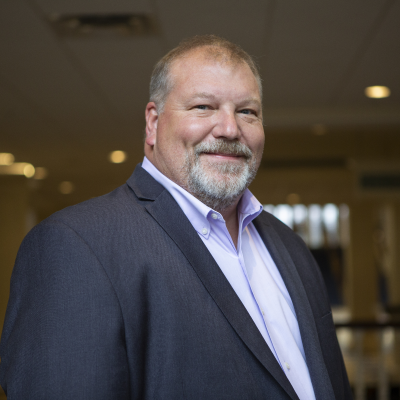
Bill Noyes
Sr VP of Reimbursement Policy
NHIA
Bill Noyes is the Senior Vice President of Reimbursement Policy at the National Home Infusion Association (NHIA). He joined NHIA in 2012 as Vice President of Health Information Policy, focusing on reimbursement and regulatory issues affecting providers' ability to do business and collect payment for their services. Noyes sits on four Medicare Contractor Advisory Councils and is the liaison to NHIA's reimbursement-focused committees. He also works closely with the NHIA government relations team to gain more meaningful Medicare coverage for home infusion. He served as Interim CEO of the associaiton from July 2018 to November 2018. Prior to joining NHIA, Noyes spent 20 years as Vice President of Operations for a multi-state home infusion provider where he was responsible for purchasing, distribution, facilities, revenue cycle management, and pharmacy operations.
No Disclosures to Report

Connie Sullivan
President & CEO
National Home Infusion Association
Connie Sullivan, B.S.Pharm, is the President and CEO of NHIA. Sullivan has over 25 years of infusion industry leadership, management, and clinical practice experience. Sullivan is responsible for NHIA’s advocacy initiatives and developing resources that support the infusion industry to foster innovation and promote the delivery of high-quality care. Sullivan also oversees the National Home Infusion Foundation, a 501c3 devoted to infusion research and developing future leaders. Sullivan is a member of the United States Pharmacopeia (USP) Sterile Compounding Expert Committee and currently Chairs the <797> Subcommittee. Sullivan earned her pharmacy degree from The Ohio State University in 1994.
No Disclosures to Report
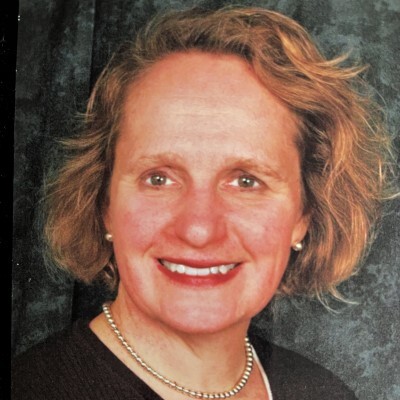
Danell Haines
Research Consultant
NHIA
Danell Haines, received her doctorate from The Ohio State University and now serves as a research consultant for the NHIA/NHIF. Currently, Dr. Haines is assisting the NHIF with the much talked about "Multi-center Time Study of Home Infusion Pharmacist Professional Services" and was instrumental in the development and validation of the Uniform Patient Satisfaction Survey Questions for Home Infusion Providers. Prior to her retirement from Ohio State, she served as a Research Scientist for the Department of Family Medicine and was Director for the National Research Institute for College Recreational Sports and Wellness. As a Research Scientist, Dr. Haines oversaw the research curriculum for the Family Medicine residents and wrote research protocols and grants. She also has publications and presentations on how to conduct research, write research manuscripts, and grant proposals. Dr. Haines enjoys analyzing and reporting benchmarking data, mentoring novice researchers, and guiding professionals through the research process.
No Disclosures to Report
-
Contains 4 Component(s), Includes Credits
This article reviews the social determinants of health, the conditions in the environments where people are born, live, learn, work, play, worship, and age that affect a wide range of health, functioning, and quality-of-life outcomes and risks.
Health equity has become a priority for many health care providers and organizations since the COVID-19 pandemic when inequities in care became undeniably clear. However, health equity is not a new issue – it has been a barrier to care for many patients over the years. This article reviews the social determinants of health, the conditions in the environments where people are born, live, learn, work, play, worship, and age that affect a wide range of health, functioning, and quality-of-life outcomes and risks. SDoH can be grouped into 5 domains: social and community context, health care access and quality, neighborhood and built environment, education access and quality, and economic stability. The authors use examples from health care research to illustrate specific SDoHs and discuss how the home and alternate site infusion care model may address them.
Learning Objectives:
- Define health equity, health disparities and social determinants of health related to home infusion.
- Describe current legislative initiatives in support of health equity and how they impact the home infusion industry.
- Recall examples of social determinants of health and develop methods to improve health equity.

Christina Ritchey, MS RD LD CNSC FASPEN
Clinical Program Manager
Optum Infusion Pharmacy
Home Parenteral Nutrition Workshop Take Off: A Pilot Program for Patient Support
Christina Ritchey, MS, RD, LD, CNSC, FASPEN is a Clinical Program Manager at Optum Infusion Pharmacy. She is a Registered Dietitian and Certified Nutrition Support Clinician, working in the home infusion industry since 2009. She has authored numerous abstracts and publications related to nutrition support, outcomes, health equity and literacy. Christina is the recipient of the 2021 NHIF Outstanding Abstract Award and 2022 ASPEN Home Parenteral and Enteral Nutrition Trailblazer award. Christina serves on the NHIA Clinical Practice Committee and ASPEN Publications and Membership Committees. She is also the President of the Texas Alamo Society of Parenteral and Enteral Nutrition.
No Disclosures to Report

Eintou Ford, MS, PharmD
Pharmacy Manager
UNC Homecare Specialist
She has experience as a clinical infusion pharmacist and in research laboratories. Ford has served as a preceptor for several pharmacy college students and has numerous publications and speaking engagements to her credit. She serves on NHIA's Education Committee and is a member of ASHP and the North Carolina Association of Pharmacists. Ford received her B.S. in Biology from Norfolk State Univerity, graduating cum laude, a M.S. in Biology from North Carolina Central University, and a Pharm.D. from Campbell University College of Pharmacy and Health Sciences in Buies Creek, North Carolina.
No Disclosures to Report
-
Contains 2 Component(s)
The purpose of this study is to examine the effect of low literacy on compliance for a home infusion patient.
Literacy is the ability to understand, evaluate, use, and engage with written texts to participate in society, to achieve one’s goals, and to develop one’s knowledge. Home parenteral nutrition (HPN) patients with low literacy may be considered non-compliant if they are unable to follow their prescription, have negative outcomes, or are readmitted to the hospital often. Studies show patients with low literacy have poorer health, higher hospitalization rates, and increased health care costs. The purpose of this study is to examine the effect of low literacy on compliance for a home infusion patient.

Christina Ritchey, MS RD LD CNSC FASPEN
Clinical Program Manager
Optum Infusion Pharmacy
Home Parenteral Nutrition Workshop Take Off: A Pilot Program for Patient Support
Christina Ritchey, MS, RD, LD, CNSC, FASPEN is a Clinical Program Manager at Optum Infusion Pharmacy. She is a Registered Dietitian and Certified Nutrition Support Clinician, working in the home infusion industry since 2009. She has authored numerous abstracts and publications related to nutrition support, outcomes, health equity and literacy. Christina is the recipient of the 2021 NHIF Outstanding Abstract Award and 2022 ASPEN Home Parenteral and Enteral Nutrition Trailblazer award. Christina serves on the NHIA Clinical Practice Committee and ASPEN Publications and Membership Committees. She is also the President of the Texas Alamo Society of Parenteral and Enteral Nutrition.
No Disclosures to Report
-
Contains 2 Component(s)
This study examines patient sociodemographic and clinical characteristics and their relation to COVID-19 treatment, focusing on intravenous bebtelovimab, oral nirmatrelvir/ritonavir, or no treatment; data is extrapolated to further understand the relationship of treatment and patient characteristics on short-term acute care outcomes.
Health disparities have been exacerbated during the COVID-19 pandemic. Despite COVID-19 treatments being associated with lower morbidity and mortality, recent data illustrates that treatment may be underutilized by certain patient populations. This study examines patient sociodemographic and clinical characteristics and their relation to COVID-19 treatment, focusing on intravenous bebtelovimab, oral nirmatrelvir/ritonavir, or no treatment; data is extrapolated to further understand the relationship of treatment and patient characteristics on short-term acute care outcomes.

Kassie Klasen, PharmD
PGY1 Pharmacy Resident
Fairview Pharmacy Services
Kassie Klasen, PharmD is a PGY1 Ambulatory Pharmacy Resident at M Health Fairview in Minneapolis, Minnesota. She graduated in 2022 from the University of Minnesota College of Pharmacy. Throughout pharmacy school, she worked as a pharmacy intern at an ambulatory infusion center. She currently staffs at Fairview Home Infusion and has completed residency rotations with several ambulatory pharmacies within the health system.
No Disclosures to Report

Alicia Zagel, PhD MPH
Fairview Pharmacy Services
No Disclosures to Report

Mary Nelson, PharmD
Fairview Pharmacy Services
No Disclosures to Report

Eric Betzold, MS
Fairview Pharmacy Services
No Disclosures to Report

Brett Benfield, PharmD, MS, FNHIA
Director of Home Infusion & Compounding
Fairview Pharmacy Services
Brett Benfield PharmD, MS, FNHIA has worked for MHealth Fairview since 2014 serving in several capacities including his current role as Director of Pharmacy for Fairview Home Infusion and 503A Compounding.
No Disclosures to Report
-
Contains 2 Component(s)
This study aimed to determine the annual percentage of home infusion patients living and receiving home infusion services in rural areas.
Approximately 15% of the U.S. population lives in rural areas. It is recognized that rural Americans have fewer health care opportunities when compared to metropolitan residents. One area of health care is home infusion with approximately 1,000 providers in the U.S. What is not understood is the availability of home infusion to rural patients. This study aimed to determine the annual percentage of home infusion patients living and receiving home infusion services in rural areas.

Steve Ward
VP Solutions Management
Wellsky
Steve Ward is the VP of Solutions of Home Care Solutions at WellSky, responsible for the strategic direction and solution roadmap for the home infusion, specialty pharmacy, and home medical equipment solutions. Steve received his Doctor of Pharmacy degree from Campbell University. He completed a pharmacy practice residency before working as a staff pharmacist at an academic medical center in Eastern North Carolina. While working as a pharmacist, Steve became involved with healthcare technology, leading the hospitals' implementation of the pharmacy EMR across the health system. Through that experience, he witnessed the unrealized potential technology has in improving healthcare and in 2001 shifted his career to focus on healthcare IT. Steve has over 20 years of experience in healthcare IT in roles ranging from EMR solutions implementations, responsibility for the software development strategy and design of inpatient and retail pharmacy, CPOE, nursing medication administration, and post-acute pharmacy solutions. Additionally, Steve has led several device-related medication process solutions, including automated dispensing and partnerships with several smart IV pumps and pharmacy automation suppliers.
No Disclosures to Report

Bill Noyes
Sr VP of Reimbursement Policy
NHIA
Bill Noyes is the Senior Vice President of Reimbursement Policy at the National Home Infusion Association (NHIA). He joined NHIA in 2012 as Vice President of Health Information Policy, focusing on reimbursement and regulatory issues affecting providers' ability to do business and collect payment for their services. Noyes sits on four Medicare Contractor Advisory Councils and is the liaison to NHIA's reimbursement-focused committees. He also works closely with the NHIA government relations team to gain more meaningful Medicare coverage for home infusion. He served as Interim CEO of the associaiton from July 2018 to November 2018. Prior to joining NHIA, Noyes spent 20 years as Vice President of Operations for a multi-state home infusion provider where he was responsible for purchasing, distribution, facilities, revenue cycle management, and pharmacy operations.
No Disclosures to Report

Connie Sullivan
President & CEO
National Home Infusion Association
Connie Sullivan, B.S.Pharm, is the President and CEO of NHIA. Sullivan has over 25 years of infusion industry leadership, management, and clinical practice experience. Sullivan is responsible for NHIA’s advocacy initiatives and developing resources that support the infusion industry to foster innovation and promote the delivery of high-quality care. Sullivan also oversees the National Home Infusion Foundation, a 501c3 devoted to infusion research and developing future leaders. Sullivan is a member of the United States Pharmacopeia (USP) Sterile Compounding Expert Committee and currently Chairs the <797> Subcommittee. Sullivan earned her pharmacy degree from The Ohio State University in 1994.
No Disclosures to Report

Danell Haines
Research Consultant
NHIA
Danell Haines, received her doctorate from The Ohio State University and now serves as a research consultant for the NHIA/NHIF. Currently, Dr. Haines is assisting the NHIF with the much talked about "Multi-center Time Study of Home Infusion Pharmacist Professional Services" and was instrumental in the development and validation of the Uniform Patient Satisfaction Survey Questions for Home Infusion Providers. Prior to her retirement from Ohio State, she served as a Research Scientist for the Department of Family Medicine and was Director for the National Research Institute for College Recreational Sports and Wellness. As a Research Scientist, Dr. Haines oversaw the research curriculum for the Family Medicine residents and wrote research protocols and grants. She also has publications and presentations on how to conduct research, write research manuscripts, and grant proposals. Dr. Haines enjoys analyzing and reporting benchmarking data, mentoring novice researchers, and guiding professionals through the research process.
No Disclosures to Report




